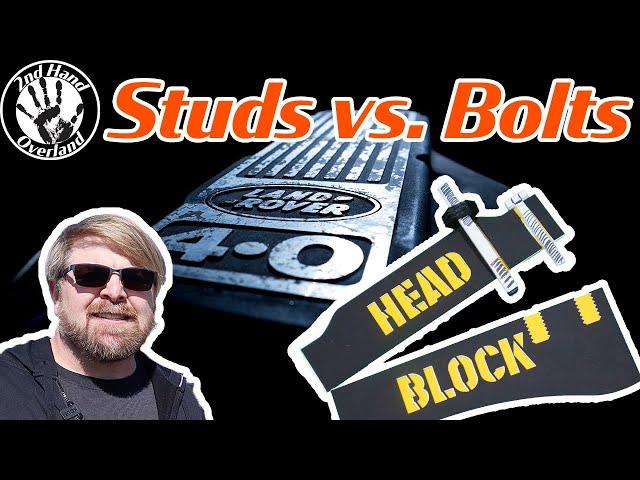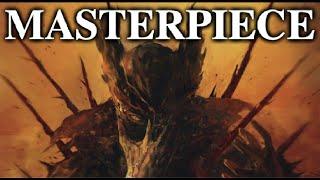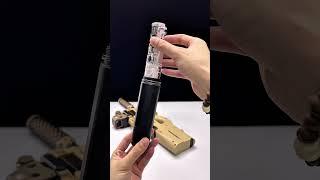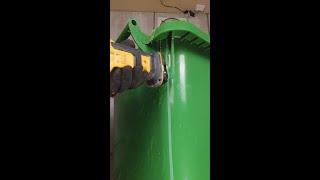
Why we chose ARP HEAD STUDS vs HEAD BOLTS for our Land Rover Discovery 1
Комментарии:

I did exactly that on my 4.0v8 Discovery 2 best decision ever
Ответить
Hey man! (Guy who commented on the o rings for the transmission cooler line video)
I wish you could see my truck! It’s a 99 D1 I bought a few months before you first started the discovery series. I’ve done everything you have had to do, and more. I bought it in not running condition. Since all the repairs I’ve driven it almost 10k miles, from San Francisco, all the way down Baja, into desserts, mountains, and everything in between. Even attempted the Rubicon in the snow (got stuck for HOURS). Anyway. Your videos are great. Very helpful. Wish I had used the ARP studs instead of the bolts!!! Thanks man!

Smart choice, and good analysis of the reasons why.
Ответить
Wow...great video. Love the detailed explanation !
Ответить
Just found this channel. Good stuff! The models you were using with the M&M’s and gummy worms were both funny, and very helpful.
Ответить
Aluminum is too soft to twist a bolt in for high torque clamping. Land Rover or not. I invested in the ARP studs, too. I like the props for explanation.
Ответить
The problem you have with your engine is there are m&m's in your head bolt holes, whereas the original British spec calls for Smarties.
Ответить
Jolly good show old chap! 😁 Love your tutorial aids you made. Studs are also easier to replace if you have damaged only one, as you can just replace the damaged one.
On any motor with aluminum components you HAVE TO fun a 96% glycol anti freeze mixed to at least a 50-50% ratio and use the same mixture for top ups. Also run an extra earth strap directly from the motor to the negative side of the battery.
Great content, keep it up!!! 👆👆💪💪👍👍

Great video and I learnt a lot!
Are there any further engine videos coming up? One thing I’d love to see is the main bearings being changed while the engine is still in place. I believe it’s OK to do but haven’t seen a video out there for this model of engine.

Really good info!
Ответить
Hiya, agree completely about studs. I remember visiting the factory and watching the way the Rover V8 was assembled and thinking ‘wow that was quick’. As you say manufacturing is quicker with stretch bolts. Another advantage that can be had with studs (particularly for the bottom end) is that the un-machined shaft helps to locate the parts better and can stop fretting and eventual failure.
Keep up the exploring and great vids :-)

Fed. Well done on the ARP head studs ! Have a look at 'Endless Air System' here Downunder which I've fitted to the Rangie to inflate tires and run air tools, etc. ? V.
Ответить
comment 27 showing, u sold Me, far better system to use, every aluminum block & head should go this route, but steel can stat old style.
Ответить
Where is headband?
Ответить
There was another good reason besides simple costs for using torque to yield bolts, and that was because it obviated the need to have the dealer re-torque the heads down at the first service (or thereabouts). Maybe with modern gasket materials it's no longer necessary, but for me when putting replacing a head with studs it used to be normal to revisit it after perhaps 500 or 1,000 miles and re-torque it to make sure.
With torque to yield bolts, there's the head tended to be held down with even tension throughout the "stretch" area.
There is no problem with applying even torque in a modern car engine factory these days. There are plenty of other places besides the heads where that's necessary and, outside those where engines are hand assembled, it's going to be done using automatic machinery that are programmed and even log the torque settings. I can't imagine that studs cost the manufacturers more than a tiny fraction of those retail prices and even fitting them would surely be pennies. What manufacturers care about is not having warranty costs.
Another thing to consider is that a torque wrench isn't actually measuring the bolt (or stud) tension. It's measuring the resistance to turning the nut (or bolt head) and that involves friction between the nut/bolt head plus in the the threads and whatever washers and lubrication that's been applied to the components.
That's not to say studs aren't better when installed with care, but they may be less suited to mass production.
(there was another potential problem with studs an alloy heads, and that was studs corroding in the heads too).

Two things; great explanation and now I want to use studs going forward, and how can I learn to talk that long between breaths?
Ответить
Just found this channel. This is a great explanation, and gave me some information I'd never have thought of otherwise.
Also, I might have to get a Land Rover.

Phew! Good info!
Ответить
Excellent Explanation, subscribing.
Ответить
Do you have an Instagram
Ответить
Well you could have made this awesomely informative video 6 years ago when I did my top end... thanks.
Ответить
What torque setting did you use
Ответить
Is this also the same reason my Jeep Cherokee Trailhawk has lug BOLTS instead of lug nuts? Cuz ugh…
Ответить
Very interesting video on something people don't usually think about, and I loved the high-tech bolt graphics.
Ответить
couldnt ask for a better explanation
Ответить
You do in fact have to torque you heads bolts/studs
Ответить

























